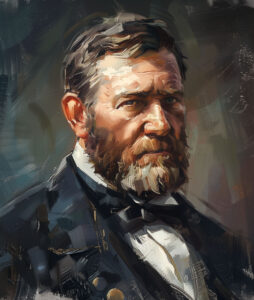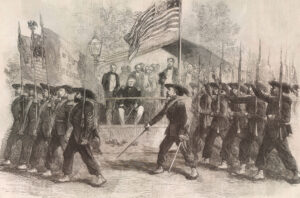The evolution of Father Abraham
Respected historian Eric Foner’s new book, The Fiery Trial: Abraham Lincoln and American Slavery, examines what the president truly believed about human bondage
Q Why another book on Lincoln?
A Even though there’s a voluminous literature on Lincoln, this particular angle is looking at Lincoln and slavery throughout his entire life—his relationship to slavery, his changing attitudes towards slavery, his relationship to other parts of the anti-slavery movement, abolitionists, more conservative anti-slavery people, how his views changed over the course of his life. When I started on this book, I felt that this was an area that had not been sufficiently analyzed.
Q What enabled him to evolve into an emancipator?
A That’s a very good question. To some extent Lincoln’s greatness rests on traits of character: open-mindedness, compassion for slaves and a deep belief in the basic values of American society. But I also think one has to place Lincoln in his historical context: the pressures upon him during the Civil War from Radical Republicans, abolitionists, from the military situation, the diplomatic situation. Lincoln is a person I think who is always open-minded, always curious, always open to change.
Q Why did race become the focus of your investigations?
A I came of age at the height of the civil rights revolution, when this question of race was dividing American society in fundamental ways, and it led a generation of historians to examine the origins of this, the history of slavery, the history of the anti-slavery movement, which was my doctoral dissertation, the question of race relations through American history, where did this crisis come from that American society was going through in the 1960s.
Q Can you compare antebellum politics to our current political polarization?
A I would be reluctant, because I think the division at the time of the Civil War rested on the existence of two fundamentally different social orders within the United States, so the political animosity reflected deep social division. I don’t think that’s entirely true today. We don’t have two kinds of society within the United States. I think it’s more purely ideological. That doesn’t make it any more pleasant or capable of resolution, but I hope we’re not headed toward another Civil War; that would be an unfortunate end result.
Q What differed in how Northerners and Southerners understood “freedom”?
A I think Northerners understood the word within the context of free labor, that is, the ability to compete in the marketplace and rise in the social scale. They came to believe that free labor was superior to slave labor. It was more effective, more just. I think Southerners saw freedom as a very individualistic set of entitlements limited to white people. To most white Southerners, owning a slave was not a contradiction to the idea of freedom, indeed rather the opposite: Owning slaves made a person more free; it enabled you to achieve the economic independence that all Americans thought was very important to freedom.
For more information on the life of Abraham Lincoln including pictures, facts, quotes, family life, and accomplishments like the Gettysburg Address and Emancipation Proclamation, please see our Abraham Lincoln theme page.




